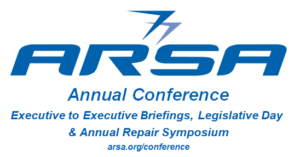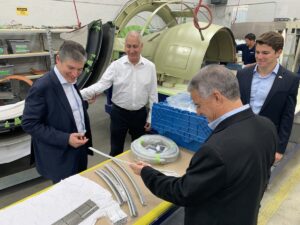2024 – Edition 9 – October 4
Table of Contents
Note: The order of material varies in hotline emails, but is always presented the same on this landing page. Readers scrolling through content on or printing this page will find it organized consistent with the table of contents.
President’s Desk
Conference Corner
Regulatory Updates
ARSA Works
Legal Briefs
ARSA on the Hill
Training & Career Development
Membership
Resources
Industry Calendar
The President’s Desk
If Nominated…
Finishing my last stint as ARSA president allows me to reflect on my father’s foresight. He recognized the talent and grit needed to advocate for independent aviation maintenance providers. The Fortner investment in that talent has served industry for more than 55 years.
To ensure businesses determined to follow the best practices and seek the most efficient solutions to design, production, or operational “unserviceable” conditions could prosper, my family help fund a fledgling group called the Aeronautical Repair Station Association over 40 years ago. My father, Bill Fortner, was one of ARSA’s early presidents. He and I share the honor of serving in the top volunteer role multiple times. We share the commitment of staying on the board our entire careers. We share the challenge of holding responsibility for our company and its support for the association.
I’m happy to say that I share his perspective on the value produced by this important work. The early investment of time and money has blossomed into multi-generational return on investment. Because of the association’s knowledge and grit, the capability for our small business to be on the cutting edge of technology and develop support capabilities for new and aging fleets of international customers was enhanced. The most obvious and continuing advocacy was the association’s insistence that major repair data be found acceptable to the European Union Aviation Safety Agency (EASA). The advocacy took place during the agency’s infancy and has been paying dividends ever since.
The work of the association team will continue and, although I will remain on the board of directors, if nominated again as president, I will not run, and if elected, I will not serve in that capacity again. Instead, I will leave the position to be filled by new enthusiasts that value the organization’s knowledge, expertise, advocacy, and determination.
 |
Gary Fortner 2024 ARSA president | Fortner Engineering & Manufacturing, Inc. vice president of engineering |
Conference Corner
Save the Date(s)
Experience the maintenance community’s premier event. Join ARSA members and invited guests from around the world to engage governments, network with peers, and improve the state of the aviation world.
Arlington, Virginia and Washington, D.C. with Livestream Options for Online Participants
Registration Opens: December 2024
Event Dates: March 18-21, 2025
Event Information
The details from the 2024 event are maintained as a reference for attendees and to assist in preparation for 2025.
Executive to Executive Briefings: Tuesday, March 18, 2025
Participation by industry executives with senior executive branch officials is limited to annual conference sponsors at the Administratium, Platinum, Gold, or Silver levels. In past years, meeting participants included representatives from the U.S. Departments of Commerce, Defense, Labor, State, and Transportation as well as the fellow trade associations and industry interest groups. Schedule Subject to Change9:00 a.m. | Introductory Briefing
10:00 a.m. | U.S. Department of State
Heidi Gomez, Deputy Assistant Secretary for Transportation Affairs, Bureau of Economic and Business Affairs
With an eye to the volatile geopolitical environment, Deputy Assistant Secretary Gomez will discuss issues impacting bilateral relationships, the bilateral negotiation process, and opportunities to influence the development of bilaterals.
11:00 a.m. | Break
11:15 a.m. | Regulatory Reform: Opportunities and Risks
Andrew Langer, President, Institute for Liberty and Director, CPAC Foundation Center for Regulatory Freedom
As an advocate, policy communicator, academic, and radio talk show host, Langer has dedicated his career to building public awareness about the shortcomings of the federal bureaucracy and, more importantly, how to improve government oversight. He will discuss the historic opportunity presented by the Trump administration to improve government operations and how the business community can help steer reform in the right direction.
12:15 p.m. | Talking Trade and Tariffs
Dak Hardwick, Vice President, International Affairs, Aerospace Industries Association, Invited
The aviation maintenance industry is facing supply chain disruptions and the potential impact of tariffs on parts and raw materials. Hardwick will discuss risks in the current environment and opportunities for the aerospace industry to steer the public discussion about aviation manufacturing, trade, and tariffs in the right direction.
1:00 p.m. | Lunch
2:00 p.m. | Importing Talent: Challenges and Opportunities
Laura Footre Reiff, Shareholder, GreenbergTraurig, Founder, Essential Worker Immigration Coalition, Invited
EWIC is a broad-based coalition of businesses and trade associations that support comprehensive immigration reform to address the technical talent shortage. Reiff will discuss opportunities to improve the U.S. immigration system and share strategies for importing talent.
3:00 p.m. | Break
3:15 p.m. | Economic Impacts
Livia Hayes, Director, Market Intelligence Team, Transportation and Services Practice, Oliver Wyman
Hayes will reveal the findings of the most recent Oliver Wyman MRO industry forecast and lead a roundtable discussion of factors and trends impacting demand for aerospace maintenance services.
4:00 p.m. | Wrap Up
Legislative Day: Wednesday, March 19, 2025
The day dedicated to educating both the aviation maintenance industry and elected officials. Learn (or brush up) on what ARSA does and what you can do so you're ready for afternoon visits with targeted Capitol Hill legislators and staff.7:30 a.m. | Registration and Breakfast
8:00 a.m. | Welcome and Introductions
Christian Klein, Executive Vice President, ARSA
Alex De Gunten, Vice President of Government & Industry Affairs, HEICO and ARSA 2025 Government Affairs Chairman
8:15 a.m. | It's All About Your Industry and Your Company
Christian Klein, Executive Vice President, ARSA
9:00 a.m. | The View from the Hill
Karen Huggard, Vice President of Government Affairs, National Air Transportation Association
Jarrod Thompson, Vice President for Legislative and Regulatory Policy, Airlines for America
Moderator: Christian Klein, Executive Vice President, ARSA
9:45 a.m. | Break
10:00 a.m. | National Defense Authorization Act: Accomplishments and Opportunities
Josh Krotec, Senior Vice President, First Aviation and ARSA Immediate Past President
Alex de Gunten, Senior Vice President for Government & Industry Affairs, HEICO and 2024 ARSA Government Affairs Chairman
Mandy Smithberger, Senior Adviser, National Security, Sen. Elizabeth Warren (D-Mass.)
Moderator: Christian Klein, Executive Vice President, ARSA
10:30 a.m. | Strengthening Our Roots
Christian Klein, Executive Vice President, ARSA
11:00 a.m. | Global Fleet & MRO Market Report Release presented by Oliver Wyman
Livia Hayes, Director, Oliver Wyman Vector
11:30 a.m. | Wrap Up
12:00 p.m. | Lunch & Adjourn
1:00 p.m. | Congressional Meetings Begin
TBD | Presentation of 2025 Legislative Leadership Award
TBD | House Aviation Subcommittee Staff Briefing (on Capitol Hill)
4:00 p.m. | Symposium Registration Open (for non-Legislative Day attendees)
5:30 p.m. | Ice-Breaker Reception
7:00 p.m. | Special Invitation Dinner
Annual Repair Symposium: Thursday, March 20, 2025
The centerpiece of Conference week, ARSA convenes a full day of substantive panel discussions covering key regulatory compliance and business issues. After the keynote address, regulators from across the world join the full-morning "Opening Salvo" conversation, followed by lunch and an afternoon of practical regulatory and business discussion.7:30 a.m. | Registration and Breakfast
8:00 a.m. | Welcome and Introductory Remarks – What ARSA Has Done Lately
Sarah MacLeod, Executive Director, ARSA
Christian Klein, Executive Vice President, ARSA
8:30 a.m. | Session 1: Fireside Chat with AIR
Caitlin Locke, Executive Director, Aircraft Certification Service
Moderator: Sarah MacLeod, Executive Director, ARSA
9:00 a.m. | Break
9:30 a.m. | Session 2: Opening Salvo – Conversations with the Regulators
Lawrence Josuá Fernandes Costa, Continuing Airworthiness Certification Manager, Department of Flight Standards, ANAC Brazil, ONLINE
Ludovic Aron, Washington Representative, EASA
Karl Specht, Principal Coordinator Organisation Approvals, EASA, ONLINE
Robert Ruiz, Acting Executive Director, Flight Standards Service, FAA, Invited
Dan Elgas, Director, Policy and Standards Division (AIR-600), Aircraft Certification Service, FAA, Invited
Neil Williams, Head of Airworthiness, Policy & Rulemaking, United Kingdom Civil Aviation Authority
10:45 | Break (Approximate; Session 2 to continue)
12:30 p.m. | Lunch and Special Presentation
2:00 p.m. | Best Approaches to Rulemaking
Tony Fazio, President, Fazio Group International
Lirio Liu, Executive Director, Willow Aviation Advisors
Sarah MacLeod, Executive Director, ARSA
Moderator: Brett Levanto, Vice President of Operations, ARSA
3:00 p.m. | ARSA Quiz Show
3:30 p.m. | Break
4:00 p.m. | More than an Apprentice
Jennifer Evans, CEO, Compressed Gas Systems
Quincy Gellerman, Student
Moderator: Brett Levanto, Vice President of Operations, ARSA
5:00 p.m. | Aerospace Happy Hour
Member Day: Friday, March 21, 2025
ARSA's leadership briefs members on the state of the association as well as goals and priorities for the coming year. Participants then close out the event by participating in breakout and/or training sessions focused on key aerospace topics. The Conference ends by 12:00 p.m. EDT.8:00 a.m. | Annual Membership Meeting and Breakfast
9:30 a.m. | Break
10:00 a.m. | Training Sessions & Breakout Discussions
HazMat Determinations – An ARSA training session on determining whether your company is a Hazardous Materials employer under the rules in 49 CFR and the regulatory requirements that all maintenance providers should heed. (One Hour)
Complying with Foreign D&A Requirements – An ARSA training session helping repair stations get ahead of the December 2027 compliance date for the new rule expanding drug & alcohol testing requirements to facilities located outside the United States. All maintenance personnel, regardless of location, should understand the industry-wide impact of the new rule. (One Hour)
Repairman to Specialist – An open discussion with industry and education leaders on developing career (and certification) pathways through 14 CFR part 65 subpart E.
12:00 p.m. Conference Ends
In-Person
All substantive and social activities were hosted at the Ritz-Carlton, Pentagon City in Arlington, Virginia. Legislative Day participants will head to Capitol Hill for meetings with congressional offices as appropriate.
Livestream
The majority of Conference events will be available to livestream viewers via a Vimeo web-player embedded into a page on ARSA.org. All in-person registrants will be able to name a "Conference Ambassador" as a contact to access the livestream and bring the event back to their home facilities. Paying registrants for livestream access may share with multiple company contacts. Livestream participation will include a mechanism for submitting questions to onsite personnel.
Pricing
| Executive to Executive Briefings | ||||
| Open to Administratium, Platinum, Gold, and Silver-level sponsors. | ||||
| Legislative Day – Wednesday, March 19 | ||||
| Members | Non-Members | |||
| First | Additional | First | Additional | |
| In-person | $400 | $360 | $600 | $540 |
| Livestream Free with in-person registration. | $400 | $600 | ||
| Symposium – Thursday, March 20 | ||||
| In-person | $900 | $810 | $1,250 | $1,125 |
| Livestream Free with in-person registration. | $900 | $1,250 | ||
| Legislative Day & Symposium Bundle | ||||
| In-person | $1,100 | $990 | $1,500 | $1,350 |
| Livestream Free with in-person registration. | $1,100 | $1,500 | ||
| The Super Bundle (Silver Sponsorship, E2E, Legislative Day, & Symposium) | ||||
| In-person | $4,200 | $4,500 | ||
| Livestream Free with in-person registration. | ||||
| Member Meeting & Training/Breakouts – Friday, March 21 | ||||
| In-person | Free with Symposium registration. | |||
| Livestream | ||||
(2) Registration fees may be waived for government personnel, members of the media, speakers, and other support personnel or special guests upon approval by the ARSA event team.
Administratium – $20,000
What is Administratium? An element aerospace professionals see every day (click here to learn more). Notation in all publicity, marketing and periodicals (e.g., the hotline, Dispatch, ARSA team email signatures, conference attendee contact list, specific email alerts to association contacts), recognition in event materials and from the podium, specific thank you in ARSA periodicals, additional advertising placement via ARSA’s communications, complimentary registrations for three (3) participants in the Executive to Executive Briefings as well as three (3) in Legislative Day, and free livestream access for personnel unable to attend in person. At the Administratium Level, sponsors may select one of the following* to specifically support (please note the list in this document does not reflect current availability):- Annual Repair Symposium – Ice Breaker Reception
- Annual Repair Symposium – Thursday Happy Hour
- General Sponsorship
Platinum – $10,000
Notation in all publicity, marketing and periodicals (e.g., the hotline, Dispatch, ARSA team email signatures, conference attendee contact list, specific email alerts to association contacts), recognition in event materials and from the podium, specific thank you in ARSA periodicals, complimentary registrations for three (3) participants in the Executive to Executive Briefings as well as three (3) in Legislative Day, and free livestream access for personnel unable to attend in person. At the Platinum Level, sponsors may select one of the following to specifically support (may not reflect current availability for 2025):- Online Conference Experience
- Executive to Executive Briefings
- Legislative Day – All Day
- Congressional Directories/Resources
- General Sponsorship
2024 Platinum Sponsors
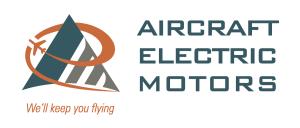 |
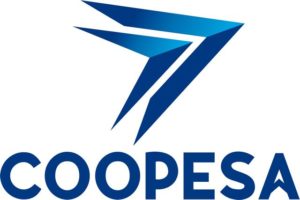 |
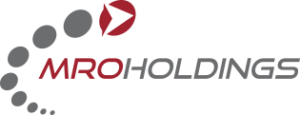 |
Gold – $7,500
Notation in all publicity, marketing and periodicals (e.g., the hotline, Dispatch, ARSA team email signatures, conference attendee contact list, specific email alerts to association contacts), recognition in event materials and from the podium, specific thank you in ARSA periodicals, complimentary registrations for two (2) participants in the Executive to Executive Briefings as well as two (2) in Legislative Day, and free livestream access for personnel unable to attend in person. At the Gold Level, sponsors may select one of the following to specifically support (may not reflect current availability for 2025):- Legislative Priorities Brochures/Resources
- Digital Companion/Electronic Materials
- Legislative Day – Continental Breakfast
- Legislative Day – Congressional Briefing and Luncheon
- Annual Repair Symposium – Continental Breakfast
- Annual Repair Symposium – Luncheon with Special Guest
- Nametag Lanyards
- Hotel Room Keys
- General Sponsorship
2024 Gold Sponsors
Silver – $3,500
Notation in all publicity, marketing, and periodicals (e.g., the hotline, Dispatch, ARSA team email signatures, conference attendee contact list, specific email alerts to association contacts), recognition in event materials and from the podium, complimentary registrations for one (1) participant in the Executive-to-Executive Briefings as well as one (1) in Legislative Day. At the Silver Level, sponsors may select one of the following to specifically support (may not reflect current availability for 2024):- Annual Repair Symposium – Coffee Break (5)
- General Sponsorship
2024 Silver Sponsors
Supporter – $2,500
Notation in all publicity, marketing, and periodicals (e.g., the hotline, Dispatch, ARSA team email signatures, specific email alerts to association contacts), and recognition in event materials and from the podium.Contributor – $500 to $2,499 (or equivalent support)
Notation in some publicity, marketing, and periodicals (e.g., the hotline, Dispatch), and recognition in event materials and from the podium.2024 Contributors
 |
ARSA's block of rooms for Conference participants at the Ritz-Carlton, Pentagon City in Arlington, Virginia is now closed. The hotel hosts most of the activities related to the ARSA Conference and is convenient to the Metro as well as Washington Reagan National Airport (DCA). To try and book a room independently, go to the hotel's website or call 703.415.5000.
Those seeking other options may consider these hotels (there are no ARSA-related specials or promotions at these locations):
Embassy Suites by Hilton Crystal City National Airport, 1393 S Eads Street Arlington, Virginia, 22202
Residence Inn Arlington Capital View, 2850 South Potomac Avenue Arlington, Virginia, 22202
DoubleTree by Hilton Hotel Washington DC – Crystal City, 300 Army Navy Drive Arlington, Virginia, 22202
Crowne Plaza Washington National Airport, 1480 Crystal Drive Arlington, Virginia, 22202
Hampton Inn & Suites Reagan National Airport, 2000 Richmond Highway Arlington, Virginia, 22202
Radisson Hotel Reagan National Airport, 2020 Richmond Highway Arlington, VA 22202
Holiday Inn National Airport/Crystal City, 2650 Richmond Highway Arlington, Virginia, 22202
The Leo Weston Award for Excellence in Government Service
First bestowed on Leo Weston himself in 2005, the Weston award honors an instrumental figure in ARSA's birth by recognizing individuals who embody his commitment to the industry's safety and success. The symposium provides a venue for association members and invited guests from around the world to network and discuss issues that matter to the aviation maintenance industry. It is the perfect time to respect the history of the repair station community and honor the good works of those who support it.
Click here to learn more about Leo, the award bearing his name, and those who have received it.The Legislative Leadership Award
The association regularly recognizes members of Congress who have provided outstanding support to the aviation maintenance community by supporting policies beneficial to the industry. Honorees have each been key in moving forward specific legislation advancing priorities championed by ARSA on behalf of its members.
Click here to see past updates regarding Legislative Leadership Award recipients.The "Golden Shovel" Award
From time to time, ARSA recognizes individuals – usually at the time of their retirement – who have spent their careers in steadfast devotion to good business, good safety, and good oversight. In the colorful illustration of Executive Director Sarah MacLeod, these professionals have spent their lives shoveling against the tide of government bureaucracy; their achievement in never giving up is acknowledged through the "Golden Shovel Award."
Click here to learn more about the "Shovel" and see who has received it.Event Photos
ARSA has created a Google Album including photos taken during the 2025 Annual Conference, which allows participants to share their own photos (Sharing event photos constitutes consenting to their use/distribution in association with Conference-related publicity for this or future events, at ARSA’s discretion). To see the album, click here.Recordings
Complete "raw" recordings are accessible by attendees via the Digital Companion. The ARSA team will utilize recorded content throughout the year in support of its communications. If you’re looking for a specific segment or need assistance with a recording, contact ARSA.The following excerpts were provided to ARSA members via the hotline newsletter. They are included here as examples of the event's content.
Legislative Day Briefing – Market Report ReleaseLeaders from Oliver Wyman Vector presented report findings to Legislative Day participants on March 19, illustrating the current and projected states of the North American and global aircraft fleets and related impacts on maintenance demand. This data illustrates the current state of the aerospace marketplace and provides insight for future business considerations. The briefing is provided in its entirety for the benefit of members.
Symposium Briefing – What Has ARSA Done LatelyThe brief session includes updates about key work performed by the association in the last year as well as instruction for maximizing membership value while helping move the enterprise forward.
Symposium Q&A – Foreign D&A TestingThe three-hour “Opening Salvo” is unlike anything else in the aerospace event cycle: Four regulatory authorities from three continents providing updates and engaging in substantive discussion with attendees. In this clip from the 2025 panel, a participant question produces more than ten minutes of discussion from the panelists.
Weston Award Recognizes Crowley’s Commitment to LearningOn March 20, ARSA recognized Jerry Crowley with its Leo Weston Award for Excellence in Government Service. Crowley is a long time FAA aviation safety inspector who was a professional protégé and friend to the award’s namesake.
Regulatory Updates
FAA Deviation – ICA and PMA by Identicality
The association has an FAA Organization and System Policy Branch, Policy and Standards Division, AIR-630 “deviation” memorandum AIR-600-DM20 digitally signed on Aug. 26, 2024 with the Subject of “Deviation to Order 8110.54A, Instructions for Continued Airworthiness Responsibilities, Requirements, and Contents, relating to Instructions for Continued Airworthiness Procedures for Parts Manufacturer Approvals by Identicality.
The memorandum states that a PMA by identicality does not affect the product ICA and an impact assessment and the Aircraft Evaluation Division involvement required by Order 8110.54A, Chapter 5, ¶¶ 1 and 2 are not applicable.
Although the deviation is not available on the agency’s Dynamic Regulatory System (drs.faa.gov), the information aligns with the regulations that only applies to a type or supplemental type certificate holder under § 21.50. Articles listed on a parts manufacturer approval holder’s supplement clearly states that the PMA part is “approved” as a replacement part for the one produced under a type and production certificate holder or as a modification part produced for a supplemental type certificate holder.
Rash Guard – FAA Posts Years of Legal Interpretations
The association regularly conducts an Interpretations Search to find out the latest “Legal Interpretations & Chief Counsel’s Opinions.” The most recent search revealed a rash of postings, one of which has created an unacceptable result. A short summary of each interpretation follows; some of them are quite old, they were just posted recently, while others are dated within the last month.
| Posting | About |
| Fiust Legal Interpretation Clarification | ARSA has contacted the AGC office about problems with the file download. |
| Jonathan Rupprecht-Legal Interpretation of 14 CFR 107.205 | Application of §§ 107.31 and 107.205(c). |
| Rescinded Kortokrax Legal Interpretation – 2006 | § 61.57 “The Office of the Chief Counsel rescinded this Legal
Interpretation because it is not supported by current FAA regulations.” |
| Rescinded Fretwell Legal Interpretation – 1995 | § 61.23 “The Office of the Chief Counsel rescinded this Legal Interpretation because it is no longer necessary due to subsequent updates to FAA regulations.” |
| Moss – 2024 Legal Interpretation of14 CFR § 43.3(d) | § 43.9(d) responsibility of a supervising mechanic or repairman to be physically present.* |
| Fields – Title 14 Code of Federal Regulations Section 91.409(f)(3) Interpretation | Application of the § 91.409(f)(3) to a “non-type certificated” airplane. |
| Filler – Legal Interpretation 1999 | Duty time for training centers under § 142.49(c)(1). (Requested on Aug. 9, answered on Aug. 27 in the same year!) |
| FAA Interpretation Access to Communication Networks During Launch | 14 CFR §§ 417.23, 431.83 and 450.209—use of communication networks and FAA access to them. |
| Van Valin – 2024 Legal Interpretation of 14 CFR §§ 135.85 and 135.113 | Occupying pilot seats—who can when. |
| Northcraft – 2024 Legal Interpretation of 14 CFR § 91.135 | Operations in Class A Airspace. |
| Fields – 2023 14 CFR 135.419(a) Legal Interpretation | Exclusive use of one aircraft under §§ 135.25(b) and 135.419(a). |
| Fields – 2024 Legal Interpretation of 14 CFR § 135.419 | Additional questions on exclusive use of one aircraft under §§ 135.25(b) and 135.419(a). |
| Fields – 2024 Legal Interpretation Sections 145.59 and 145.61 for Repair Systems | “[T]he issuance of limited ratings for articles that are already covered by an existing class rating.” |
| Grant Aviation – 2023 135.113 Legal Interpretation | “Accordingly, a qualified SIC, check airman, or other FAA, NTSB, or USPS representative is permitted to sit in the second pilot seat when there are more than eight passengers present without the need for them to be actively engaged in their respective duties.” |
| Southwest Airlines Pilots Association – 2023 Legal Interpretation | 14 CFR § 117.25(e) rest period notifications. |
| Mosquito Control – 2023 Title 14 137.3 Legal Interpretation | Is dispensing of live mosquitos considered an agricultural operation under § 137.3? |
*The Moss interpretation defies the plain language of the regulations by defining “in person” narrowly which impacts more than its application of the phrase to section 43.3(d). The association is gathering signatures on a letter requesting the interpretation be suspended until a full review of the regulatory language, policies, and applications can be made.
ARSA Works
FAA Acknowledges Repair Station Paperwork Burden
On Sept. 26, ARSA commented on the FAA’s second Federal Register notice regarding its assessment of the paperwork burden associated with FAA requirements for repair station certificate applications. In general, the association praised the agency’s updated analysis of the records and documents required by part 145.
Under the Paperwork Reduction Act (PRA), executive branch agencies like the FAA must regularly request Office of Management and Budget (OMB) review and approval for collection of information from the public. The notice continues the process begun in July for the ninth review of repair station application burden since the current part 145 was established in 2001.
ARSA commented on the initial notice by explaining the FAA’s past assessments drastically underestimated the burden associated with an application made under § 145.51. In response, the agency’s supporting statement submitted to OMB for this review has been completely redesigned and its resulting estimated industry burden dramatically expanded.
“[The FAA’s] new analysis includes a thorough review of all paperwork and recordkeeping requirements established by the plain language of part 145. The FAA’s explanation of circumstances making collection necessary…and “Reporting Burden Calculations” cover various submissions required of applicants and information management mandated for certificate holders including manuals, capability lists, and various compliance records,” ARSA’s comments said.
In its July comments, the association urged the FAA to audit its assessment of application and recordkeeping requirements in part 145. ARSA explained repair stations must do far more than simply complete an application on Form 8310-3, they must also produce and maintain multiple manuals, documents, and lists in support of their proposed procedures. The new assessment acknowledges these various requirements and estimates the total annual burden on the international repair station community to be 240,869 hours costing $11,507,548 annually.
“Considering all recordkeeping requirements and not just completion of an application on FAA From 8310-3 resulted in a 23,000 percent increase in hours and a 2,600 percent increase in estimated cost; these increases greatly exceed the estimates offered by ARSA in its initial comments,” the association said.
The association’s comments, signed by Vice President of Operations Brett Levanto, praised the updated analysis while highlighting further improvements possible in the FAA’s description. Levanto noted the agency had overstated the compliance expectations necessary for the government to issue a repair station certificate. He also highlighted the continued practice of applicants completing the Data Collection Tools via the Safety Assurance System (SAS) External Portal, despite agency guidance directing inspectors that DCTs are for internal use only; a paperwork burden not addressed in the agency’s analysis.
To read ARSA’s comments, click here.
Technical Industries Push U.S. Congress for Workforce Funding
On Sept. 12, ARSA joined nearly 130 organizations across multiple industries and academia in urging U.S. congressional leaders to fully fund federal workforce programs.
“Employers are already facing workforce challenges. Impending waves of retirements from older workers, competition for workers across industries, and inadequate access to worker supports like childcare will exacerbate the existing demand for workers,” the group’s letter to House and Senate leaders said. “In order to address the immediate and long-term needs of businesses and workers, Congress must support robust investments in skills.”
The group advocated for appropriations legislation that:
(1) Funds federal workforce programs at robust levels.
(2) Provides dedicated funding for industry or sector partnerships.
(3) Expands Pell Grants to high-quality short-term training programs.
ARSA members benefit from improved technical training of all kinds. From short-term programs to aviation maintenance training school completion to full engineering curricula, maintenance providers compete for talent among and between every technical industry in the world.
The association’s workforce advocacy produced technician workforce grant programs that must be appropriated funds at the higher levels authorized by Congress in this year’s FAA reauthorization law. ARSA’s team will continue this broad push for skills investment will working to bolster specific programs – including regulatory improvements – serving aviation maintenance interests.
To read the complete letter, organized by Business Leaders United, click here.
Survey: Helping the Government’s Work
Researchers from the U.S. Government Accountability Office are auditing the FAA’s requirement that certificate holders waive the right to the Equal Access to Justice Act (EAJA) to obtain a settlement with the agency.
The EAJA authorizes the payment of attorney fees to a party prevailing against the U.S. government in litigation. Businesses with a net worth of no more than $7 million and 500 employees can apply for EAJA awards by demonstrating the agency’s position was not substantially justified.
FAA Order 2150.3C directs the FAA Office of the General Counsel to include a waiver of the EAJA in any settlement determination: “The agreement states that the person charged with violating the regulations agrees to not initiate any litigation under the Equal Access to Justice Act or any other statutory provision or rule to collect legal fees or costs.” (See, Ch. 8. ¶ 29.b.(8).)
This year’s FAA reauthorization law directed GAO to study the issue and report to Congress regarding the frequency of EAJA waivers and their impact on both the government and the public. To assist, those certificate holders who have made settlement agreements with the FAA can answer the following questions for the GAO.
Note: The question is displayed in its own, embedded window. If the “Submit” button is not visible on the screen, you must scroll within the survey window in order to submit your response.
If the embedded survey does not appear, use the following URL: https://www.surveymonkey.com/r/FAA_EAJA_waivers.
Potted Plants
The FAA chief counsel’s response to ARSA’s latest letter on ex parte and full participation in stakeholder committees and ARC deliberations recalls a line made famous by Brendan Sullivan during the Iran-Contra hearings when Oliver North was being grilled by the Joint Committee investigating the scandal. Sullivan’s objection to unfair questioning resulted in an admonishment by a senator to “let the witness object if he wishes to.” The lawyer appropriately responded: “Well, sir, I’m not a potted plant, I’m here as a lawyer. That’s my job. [To object to unfair questioning.]”
The FAA’s Office of Chief Counsel takes the opposite view: Its representatives are merely “observers” during deliberations of stakeholder committees and ARCs. The representatives are not “subject matter experts” apparently even in the law. It is no wonder lawyers are held in such low esteem within the agency; the Chief Counsel sets the tone for the office; apparently it is enough to be a potted plant.
One hopes the potted plants are at least provided with water and fertilizer.
To see the chief counsel’s most recent response, click here.
For backstory, visit arsa.org/ex-parte.
Final Documents/Your Two Cents
This list includes Federal Register publications, such as final rules, Advisory Circulars and policy statements, as well as proposed rules and policies of interest to ARSA members.
Legal Briefs
Editor’s note: This material is provided as a service to association members for educational and informational purposes only. It does not constitute legal or professional advice and is not privileged or confidential.
Defining Deference
By Sarah MacLeod, Executive Director
Much has been made of the Supreme Court of the United States’ decision in Loper Bright Enterprises, et.al. v. Raimondo, Secretary of Commerce, et.al. (603 U.S. ____ (2024)) that purportedly overruled the deference given federal executive agencies’ interpretation of the statutes they are empowered to administer.
While the Court certainly uses many words justifying its decision; according to the case’s Syllabus, certiorari was granted on a very narrow issue – “whether Chevron should be overruled or clarified.” Although the word “overruled” may be too strong, the decision certainly clarifies when and how much weight (deference) a federal agency’s interpretation of its statute is to be given by a reviewing court.
Two things are made clear.
First, when the legislative branch has given the power of the federal agency, for example, when the enacted law uses words like “in the discretion of the Administrator”, giving that authority to the agency, the court’s role is explained in the Administrative Procedure Act. The court is to independently review the delegated authority, and ensure the agency engaged in “reasoned decision-making” within that delegation.
Second, when the agency has provided a “contemporaneous” interpretation of the statute and it remains consistent, a reviewing court will give “…’the most respectful consideration’ to Executive Branch interpretations simply because ‘[t]he officers concerned [were] usually able men, and masters of the subject,’ who may well have drafted the laws at issue. Roper, citing United States v. Moore, 95 U. S. 760, 763.
Where does that leave parties subject to federal agency decisions? There are many places in Title 49 United States Code that give the Secretary of the Department of Transportation and the Administrator of the Federal Aviation Administration broad discretion. The FAA often issues advisory material and other interpretative documents “contemporaneously” with its new regulations.
However, it did not do such a careful job of retaining consistency in its interpretative materials between recodification of the aviation safety regulations in the 1960s and today. As many applicants and certificate holders experience, the goalposts for compliance move much faster than regulatory changes. Guidance purportedly directed at the agency’s workforce requires information and submissions from applicants and certificate holders that go beyond the plain language of applicable regulations; that guidance has not remained consistent. Furthermore, the agency no longer has personnel that are “masters of the subject” nor does the executive branch have much influence on drafting “the laws at issue.”
Obviously, time will tell whether Chevron was overruled or discretion was redefined. As an old saying goes about divorce, “When the couple see red, the lawyers see green.”
Editor’s note: This material is provided as a service to association members for educational and informational purposes only. It does not constitute legal or professional advice and is not privileged or confidential.
Layman Lawyer – The A in Pear
By Brett Levanto, Vice President of Operations
The layman lawyer is continuing an exploration of the human factors practice in Safety Management Systems by diving into each element of the PEAR Model.
The primer in the June 2024 hotline introduced the “people, environment, actions, and resources” safety assurance structure. July’s article looked at the “human” performance elements of the model, which exists within the working environment provided by a company and created by its people (and covered last month).
Now let’s explore “action” through those people and in that environment. ARSA’s Human Factors training outlines key actions to be considered:
- Task Completion Steps
- Task Sequencing
- Performance Standards
- Number of People Involved
- Communication: Oral, Visual, Written
- Information Control Requirements
The FAA Safety Team’s “Human Factor’s Guide for Aviation Maintenance and Inspection,” explains human factors is a science of people’s interactions with the world around them. In a technical environment, those interactions are encapsulated through the actions performed in preparation, execution, and recordkeeping of maintenance work.
“The term ‘actions’ refers to the tasks that are necessary to perform one’s job,” the guide says. “Many aviation maintenance jobs are highly proceduralized. Each step in a job might be spelled out on a job card or a computerized maintenance manual. In such cases, specifying job tasks is as easy as copying each step in the procedure. However, the level of detail in maintenance procedures varies considerably from job to job [and based on the experience and knowledge of the technician].”
An effective task description should include standards for completion, e.g., the amount of “free play” in a trim tab, methods for performance, and resources, e.g., tools, for execution. Testing the effectiveness of tasks and procedures requires walking through each step. The evaluation should include observed by a trained individual but the steps are best performed by skilled but unfamiliar technicians to create the most effective task description.
A favorite non-aviation example of a walkthrough evaluation is the PB&J challenge. Simply write out instructions for making a peanut butter and jelly sandwich, then have someone else follow them explicitly. You’re unlikely to end up with lunch.
Good task management shouldn’t lead to despair. Gaps in procedures are closed with expertise; uncovering them takes safety management that will then mitigated the risk to a manageable level.
For tools that can help ARSA members with the translation to SMS, go to arsa.org/sms-program for resources available through a partnership with the Aircraft Electronics Association.
ARSA on the Hill
GOTV
By Christian Klein, Executive Vice President
The government has a heavy impact on the aerospace maintenance industry. The association encourages its members to become actively involved in who makes decisions in the Oval Office and casts votes on the House and Senate floor of the federal and local governments.
With control of Congress and the White House up for grabs this election year, the association encourages all members to support their employees’ political participation.
The benefits are myriad.
Political participation by every citizen enhances awareness about candidates and issues.
Empowering employees’ involvement, makes them feel respected and valuable, enhancing loyalty to the company.
It reinforces the role the government plays in the industry and the livelihoods dependent upon it, while reminding citizens the government answers to us, the voters.
For companies with large numbers of first-generation Americans (particularly those from countries without representative governments or where voters are suppressed) it assimilates them into our country’s 248-year-old democratic experiment.
Here are some suggestions:
Paid leave. Don’t force employees to choose between their paycheck and voting. Many companies provide paid time off on election day and keep meetings to a minimum to provide flexibility. CEOs from more than 2,000 companies have signed the pledge on maketimetovote.org to increase voter participation by ensuring employees have a work schedule that allows them to vote or, if applicable, have resources for mail-in ballots. Note that in some cases state laws may require companies to provide voting leave. Also, keep in mind that while employers may encourage employee voting, it’s illegal under federal law to intimidate, threaten, or coerce anyone into voting or not voting.
Knowledge. Providing information is another essential way to support political participation. ElectionDay.org provides a nonpartisan 2024 Voter Toolkit to educate citizens about each step of the voting process, help in registering, and casting ballots are included.
The toolkit provides:
- Voter registration rules and deadlines.
- A 50-state early voting calendar.
- Each state’s voter ID rules.
- Resources to help employes see what’s on the ballot.
Recognition. Some companies encourage employees to pledge to vote and then highlight employee voting activity on the company’s social media.
Holding an election event. ARSA connects members around the country with their elected officials (see related story this issue). For assistance inviting a candidate to your facility, Ask ARSA First.
|
Want to Learn More About ARSA PAC? ARSA’s Political Action Committee helps elect congressional candidates who share ARSA’s commitment to better regulation and a strong aviation maintenance sector. In this critical election year, ARSA PAC has never been more important. But ARSA is prohibited from sending PAC information to members who haven’t opted in to receive it. Please take a second to give us prior approval to talk to you about ARSA PAC. Doing so in no way obligates you to support PAC. It just opens the lines of communication. Click here to give ARSA your consent today. |
From the Hill to HEICO
ARSA strengthens the maintenance industry’s grassroots lobbying muscle by leveraging ARSA Political Action Committee (PAC) funds to build closer ties between members and Congress.
Activist industry leaders in key states are scheduling meetings to (re)introduce themselves and deliver ARSA PAC support to candidates who share the commitment to fair, effective oversight, and achieving aerospace safety by the most efficient means possible.
The effort kicked off in August when members Bob Arnett (Earp Aviation Repairs) and Bill Grantham (International Air Response) met with Rep. Greg Stanton (D-Ariz.) on Aug. 19 to deliver ARSA’s contribution.
On Sept. 5, the HEICO Corporation hosted Rep. Mario Diaz-Balart (R-Fla.) at the company’s Northwings Accessories Miami facility. Diaz-Balart, who is highly knowledgeable about maintenance industry issues, is a senior member of the House Appropriations Committee and has more repair stations in his district than any other member of Congress. His visit included a facility tour as well as a meeting with HEICO’s leadership team (including Alex De Gunten, HEICO vice president of government and industry affairs, and ARSA’s Government Affairs chairman), ARSA Board Member Jon Silva (Aerokool Aviation, Inc.), and ARSA Executive Vice President Christian Klein.
Other efforts are underway between now and the election. If you’re interested in creating or strengthening a relationship with your congressional representatives let ARSA know.
Finding Your Member of Congress
In the summer of an election year, senators and congressmen want to meet constituents. ARSA members should take advantage of this interest to schedule facility visits, town halls, meet and greets, or any other excuse to spend time with the person representing your business in Congress.
As ARSA Legislative Day participants hear every year, building an ongoing relationship with your elected officials is really a matter of simple effort. The most successful constituents are patient and persistent…and they know how to use a few simple tools for finding their members of Congress.
Who represents you?
Using ARSA’s Legislative Advocacy Tools – provided all year by Conference sponsor Aircraft Electric Motors – find your elected officials by entering your zip code in the “Election Center.” (Remember to enter your personal zip code and also the one for all facilities associated with your company; there may be multiple officials/offices with an interest in your needs.) Get started at arsa.org/congress.
When will they be home?
Members of the U.S. Congress try to spend as much time in their states/districts as possible. Both the House and Senate leadership have published session calendars for 2024. By reviewing these calendars, you can determine when your senators and congressman are likely to be “back home” by looking for dates not in session. Review the schedule documents below and find updated information at www.congress.gov/calendars-and-schedules.
| House | Senate | |
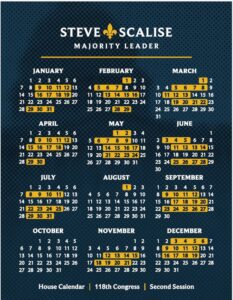 |
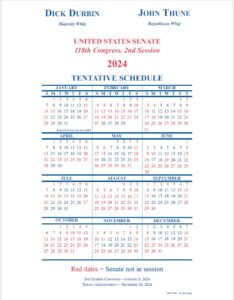 |
What do you do now?
Contact use the contact resources available at arsa.org/congress to get in touch with the offices that represent you and invite them to visit your facility on one of the dates for “district work.” For talking points and other guidance, visit arsa.org/legislative or contact ARSA.
Aviation Life Calendar
October Through February
Something exciting happens every day in an aviation career.
If you want to keep aviation in the forefront of career choices, celebrate success every day with these resources. Every one provides a positive view of the industry’s ability to make the impossible an everyday event by individuals from every walk of life, socio-economic level, race, creed, color, religion, orientation, and physical capability.
Check back regularly for updates.
| Month | Day | Event or Celebration |
| All | All | This Day in Aviation |
| September | All | This Day in Aviation History – September |
| September | 4 | Global Talent Acquisition Day |
| September | 15 | Hispanic Heritage Month |
| October | All | This Day in Aviation History – October |
| October | 4 | World Space Week |
| October | 20 | International Air Traffic Controller Day |
| November | All | This Day in Aviation History – November |
| November | All | National Aviation History Month |
| November | 8 | National STEM/STEAM Day |
| December | All | This Day in Aviation History – December |
| December | 7 | International Civil Aviation Day |
| December | 17 | Wright Brothers Day |
| January | All | This Day in Aviation History – January |
| January | 9 | National Balloon Ascension Day |
| February | All | This Day in Aviation History – February |
| February | 11 | International Day of Women and Girls in Science |
| February | 18 | National Battery Day |
| February | 16-22 | National Engineers Week |
Training & Career Development
Maintenance Educators Update Congress on Talent Pipeline
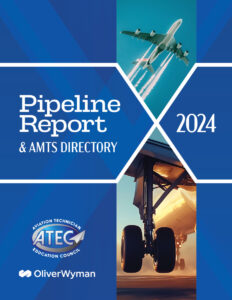 On Sept. 19, the Aviation Technician Education Council (ATEC) released its 2024 Pipeline Report. The report’s analysis was performed by Oliver Wyman Vector, which also produces ARSA’s Annual Market Assessment, and presented during ATEC’s 2024 Washington Fly-In.
On Sept. 19, the Aviation Technician Education Council (ATEC) released its 2024 Pipeline Report. The report’s analysis was performed by Oliver Wyman Vector, which also produces ARSA’s Annual Market Assessment, and presented during ATEC’s 2024 Washington Fly-In.
The official release took place on Capitol Hill, as ATEC members representing part 147 schools, repair stations, and operators engaged the U.S. Congress on key mandates from this year’s reauthorization of the FAA. The report indicates new mechanic certificates jumped 32 percent in 2023, enrollment at aviation maintenance technician schools (AMTS) was up 6 percent, and 32 percent more American military veterans obtained FAA certification compared to 2022.
Despite the good news, the influx of new mechanics will be insufficient to meet commercial aviation’s projected needs amid rising demand for air travel for the next decade. The report estimates the current shortage to be 9 percent and projects it to reach nearly 20 percent – equivalent to about 25,000 certificated mechanics – by 2028. This continued shortfall reinforces ARSA’s broad interest in bolstering multiple pathways to maintenance careers, particularly in repair stations where the report indicated total employment includes non-certificated personnel filling the majority of technical roles.
As reported by ATEC, the report’s additional takeaways include:
- The surge in new certifications can be attributed to several factors, including an end (and apparent reversal) of deferrals, the development of new work-based certification pathway programs, a rise in student certifications in A&P programs, and increased enrollment.
- A lack of resources is constraining AMTS throughput. Many schools report maximum practical capacities that are below their allowable capacities due to shortages of instructors, facility space, or other resources. Designated Mechanic Examiner (DME) shortages are another key constraint. ATEC estimates that the industry needs 30% more DMEs just to account for the current flow of graduates.
- The percentage of women among newly certificated A&P mechanics is rising, but slowly. Women make up just 2.8 percent of the mechanic population, up from 2.2 percent a decade ago. Rates in the pipeline are slightly better: 6.7 percent of new AMTS-sourced certificated mechanics are women, compared to 4 percent of those sourced from military or civilian experience.
- The AMTS student load factor, which measures the ratio of available A&P program seats to enrolled students, has improved to 65 percent. Nationally, there are an estimated 12,000 seats available within the A&P school network. Despite commendable efforts and initiatives that boosted AMTS enrollments by 5% last year, one in every three available seats remains unfilled.
Before the official release, ARSA Vice President of Operations Brett Levanto joined the group on Sept. 18 for a day of briefings and discussion focused on how industry must push the agency to make good on provisions in the new law. Levanto, ATEC Executive Director Crystal Maguire, and Airlines for America Managing Director of Engineering & Maintenance, walked the group through the current status and next steps related to several key technician career development initiatives:
(1) Funding and program administration for technician workforce grants.
(2) Early testing for high school students completing aviation maintenance curriculua.
(3) Improved military to civilian career transitions.
(4) General expansion of technical education and funding opportunities.
Stay tuned to ARSA for updates on its pursuit of these programs and partnership with ATEC.
To download the pipeline report, click here to visit the ATEC website.
To review ARSA’s advocacy related to this year’s FAA reauthorization law, click here.
Instructions for Continued Airworthiness
View ARSA’s three-part series on instructions for continued airworthiness (ICA), led by Managing Director and General Counsel Marshall S. Filler. ICA has been a key focus of ARSA’s work on behalf of the maintenance community for decades and it continues to demand attention from aviation businesses worldwide. Turn the association’s experience into your benefit.
ICA – The Basics
This session overviews the regulatory basis for ICA, including what documents are considered ICA and the obligations of design approval holders to prepare, furnish and otherwise make them available under 14 CFR § 21.50(b). It also covers the related regulations that apply to operators and maintenance providers regarding the use and availability of ICA. Finally, it shows how the FAA has interpreted some of the more important ICA requirements in Order 8110.54.
Click here to register and get access for 90 days.
ICA – The Business Side
This session explains the importance of ICA and describes ARSA’s efforts to strike an appropriate balance between often-competing regulatory and business considerations. It also addresses various design approval holder (DAH) business practices that affect the availability and use of ICA and explains the FAA’s policy prohibiting DAHs from engaging in certain behaviors. It also explores various FAA ICA legal interpretations and some of the issues being examined in an ongoing anti-trust inquiry by the European Commission’s Competition Directorate.
Click here to register and get access for 90 days.
ICA – Case Study: Testing Your Knowledge
This session will test participants’ knowledge of ICA-related provisions in 14 CFR and FAA guidance by presenting several hypothetical case studies. Each one will focus on one or more of the significant ICA regulatory principles.
Click here to register and get access for 90 days.
Click here to purchase all three sessions together and receive a “bundle” discount.
Note: Sessions must be viewed in order. Completion of each pre-requisite – either via live session or on-demand recording – is required for access to subsequent classes.
Registration for an ARSA training session includes:
- Access to the on-demand recording of each session for 90 days.
- Digital copies of the presentation and all reference material with links to relevant resources and citations.
- A certificate upon completion of each class.
The association’s training program is provided through Obadal, Filler, MacLeod & Klein, P.L.C., the firm that manages ARSA. To go directly to OFM&K’s online training portal, visit potomaclaw.inreachce.com. To learn more about the association’s training program and see course availability, visit arsa.org/training.
Administrative Agencies and Their Powers
This session reviews why federal administrative agencies are created and how they use their powers to regulate activities within their jurisdiction. It also covers the basic procedures agencies must follow to create or revise regulations.
Click here for more information and to register.
Registration for an ARSA training session includes:
- Access to the on-demand recording of each session for 90 days.
- Digital copies of the presentation and all reference material with links to relevant resources and citations.
- A certificate upon completion of each class.
The association’s training program is provided through Obadal, Filler, MacLeod & Klein, P.L.C., the firm that manages ARSA. To go directly to OFM&K’s online training portal, visit potomaclaw.inreachce.com. To learn more about the association’s training program and see course availability, visit arsa.org/training.
Regulatory Compliance Training
Test your knowledge of 14 CFR § 21.17, designation of applicable regulations for TC application.
Click here to download the training sheet.
Membership
Keep ‘em Informed?
The association’s benefits extend to the public – while members are automatically provided the The Dispatch, anyone may register to receive the weekly news roundup.
While the title isn’t very inventive, the emailed summary of news important to civil aviation maintenance providers provides information on issues of note—
- ARSA Updates contains information on the association’s advocacy.
- ARSA in The News follows editorials and mentions of the association in aviation-centric news outlets.
- Industry News contains summaries of actions and happenings in the world of aviation maintenance.
- Working for the Workforce summarizes educational, grant, and other items important to obtaining and retaining the skills and talents unique to aerospace.
- Regulatory Updates contains selected rulemaking actions by national and international civil aviation authorities.
If a customer, friend, neighbor, colleague, or government employee would like to remain informed on international aerospace maintenance activities, have them “hooked up” by sending a request through Ask ARSA by checking “I want to subscribe to or check delivery status of an ARSA periodical (e.g., The weekly Dispatch). Registrants can change the status of receipt by sending a similar request.
Register Your People
ARSA sometimes receives membership applications from individuals that already belong to the association through their employer.
We encourage primary contacts at member companies to keep their workforce informed of ARSA member benefits.
Updating the profile sent after membership renewal is received or at any other time by submitting a request through “ASK ARSA” and selecting the “Member” then “I want to update my member company, contact or billing information” options.
This will ensure that ARSA records are up to date and all appropriate individuals know they already have access to member benefits.
Advertising – Sustain Us All
An ad placed in ARSA’s communications not only highlights a business, product, or event, it sustains the association’s mission.
ARSA ads generate attention (measurable through clicks) and results (measurable through consistent commitment of advertisers). Submit your ad request today, we’ll help with the rest.
To learn more about ARSA’s advertising program, click here.
Welcome & Welcome Back – New & Renewing Members
ARSA’s members give the association life – its work on behalf of the maintenance community depends on the commitment of these organizations. Here’s to the companies that joined or renewed in September:
New Members
Aero Hydraulics, Inc., R01
GA Telesis Engine Services, LLC, R02
Northeast Aero Compressor Corp., R03
Renewing Members
Aerospace Welding Minneapolis, Inc. , R01, 2020
AerSale Goodyear Aircraft Operations Center, R05, 2015
Airforce Turbine Service, Ltd., R02, 2010
AllClear Aerospace & Defense, Inc. dba AllClear Repair Services, Inc., R03, 2022
Calvin Taff Electronics, Inc., R01, 2003
Curtiss-Wright Actuation Systems, R03, 2003
Dassault Falcon Jet Corp. , R05, 2002
Dassault Falcon Jet do Brazil, R02, 2010
Diversified Aero Repair, LLC, R01, 2023
Fieldtech Avionics & Instruments, Inc., R04, 2016
Jeronimo Gracian, Affil, 2023
HEICO Aerospace Corporation, Corp, 1992
Hot Section Technologies, Inc. , R02, 2017
Intrepid Aerospace, Inc., R02, 2016
Jordan Propeller Service, Inc., R02, 2002
Miami Aircraft Structures, Inc., R03, 2003
Midway Aircraft Instrument Corporation dba Midway Aerospace, R02, 2004
New Image Aero Interiors Corp. dba NIA Interiors, R01, 2023
Paz Aviation, Inc., R02, 2016
Peter Stonefield, Affil, 2010
Rapco Fleet Support, Inc., R01, 2008
Tech-Aire Instruments, Inc., R01, 2012
The Aviation Group, Inc., R01, 2023
Trace Aviation, R02, 2017
Turbine Standard, Ltd., R03`, 2003
Strix Aero LLC, Assoc, 2023
Sherwood Avionics & Accessories, Inc. dba Sherwood Aviation, R04, 2021
Unipak Aviation, LLC, R02, 2003
Yuba-Sutter Aviation, R01, 2018
A Member Asked…D&A issue in an applicant’s past?
Q: We have a question regarding pre-employment drug and alcohol background information. We currently do not ask potential employees to provide background information for more than two years. If the potential employee discloses a previous positive FAA DOT D&A test from more than two years ago, is there a statute of limitations for the 49 CFR § 40.25(e) requirement for the employer?
Title 49 CFR § 40.25(e) section states clearly:
If you obtain information that the employee has violated a DOT agency drug and alcohol regulation, you must not use the employee to perform safety-sensitive functions unless you also obtain information that the employee has subsequently complied with the return-to-duty requirements of Subpart O of this part and DOT agency drug and alcohol regulations.
We are under the impression there is no statute of limitation, meaning once we know, we know. The knowledge would require us to perform further investigation to verify the potential employee completed the required return-to-duty program.
Is this the correct interpretation of our responsibility?
A: Yes, you are correct, you can’t be a little bit pregnant.
Title 49 CFR § 40.25(b) requires hiring companies to seek the referenced D&A testing information of a potential employee from employers that are subject to the same (DOT/FAA) testing requirements in the previous two years.
However, § 40.25(e) is about the return to duty requirements “[i]f you obtain information that the employee has violated a DOT agency drug and alcohol regulation.” (Emphasis added.)
The Department of Transportation has a Q&A page covering § 45.25. There is one question regarding an applicant’s admission to testing positive or refusal. Despite the question’s referencing the two-year period, the answer is helpful:
- If the applicant admits that he or she had a positive or a refusal to test result on a pre-employment test, the employer is not permitted to use the applicant to perform safety-sensitive duties until and unless the applicant documents successful completion of the return-to-duty process.
- This Part 40 requirement applies whether or not the pre-employment positive or refusal occurred before, on, or after August 1, 2001.
- Should no proof exist that the return-to-duty process was successfully complied with by the applicant, a current return-to-duty process must occur before the individual can again perform safety-sensitive functions.
As you assumed, if the company is aware, it needs to comply with the requirements of § 40.25(e).
Have questions about aviation regulatory compliance, legislative policy, or ARSA resources? Ask ARSA first!
Resources
ARSA strives to provide resources to educate the general public about the work of the association’s member organizations; should you need to provide a quick reference or introductory overview to the global MRO industry, please utilize AVMRO.ARSA.org.
About ARSA PAC
ARSA’s Political Action Committee helps elect congressional candidates who share ARSA’s commitment to better regulation and a strong aviation maintenance sector. But ARSA is prohibited from sending PAC information to members who haven’t opted in to receive it.
Careers in Aviation Maintenance
How do you share the industry’s story with the people who could be its future? Teach them about the great work done every day to keep the world in flight. (Even if we can’t recruit somebody, we sure can make them thankful for our work.)
U.S./EU Maintenance Annex Guidance
See all of the association’s public updates since 2012 on the Maintenance Annex Guidance between the United States and European Union. The page focuses in particular on matters related to parts documentation issues arising since MAG Change 5 was issued in 2015.
Industry Meetings & Events
| Conference | Dates | Location |
| IAQG Meeting Week & 56th General Assembly | 10/21-24/2024 | Tokyo |
| MRO Europe | 10/23-24/2024 | Barcelona |
| 2024 NBAA Business Aviation Convention & Exhibition | 10/22-24/2024 | Las Vegas, Nevada |
| MRO Australasia | 11/13-14/2024 | Brisbane, Australia |
| NATA Aviation Business Conference | 11/13/2024 | Nashville, Tennessee |
| AOPA High School Aviation Symposium | 11/17-19/2024 | Atlanta, Georgia |
| ARSA Annual Conference | 3/18-21/2025 | Arlington, Virginia |
| IAQG Meeting Week & 57th General Assembly | 4/7-10/2025 | Brussels |
the hotline is the monthly publication of the Aeronautical Repair Station Association (ARSA), the not-for-profit international trade association for certificated repair stations. It is for the exclusive use of ARSA members and federal employees on the ARSA mailing list. For a membership application, please call 703.739.9543 or visit arsa.org/membership/join. For information about previous editions, submit a request through arsa.org/contact. This material is provided for educational and informational purposes only. It does not constitute legal, consulting, tax or any other type of professional advice. Law, regulations, guidance and government policies change frequently. While ARSA updates this material, we do not guarantee its accuracy. In addition, the application of this material to a particular situation is always dependent on the facts and circumstances involved. The use of this material is therefore at your own risk. All content in the hotline, except where indicated otherwise, is the property of ARSA. This content may not be reproduced, distributed or displayed, nor may derivatives or presentations be created from it in whole or in part, in any manner without the prior written consent of ARSA. ARSA grants its members a non-exclusive license to reproduce the content of the hotline. Employees of member organizations are the only parties authorized to receive a duplicate of the hotline. ARSA reserves all remaining rights and will use any means necessary to protect its intellectual property.
© 2024 Aeronautical Repair Station Association





